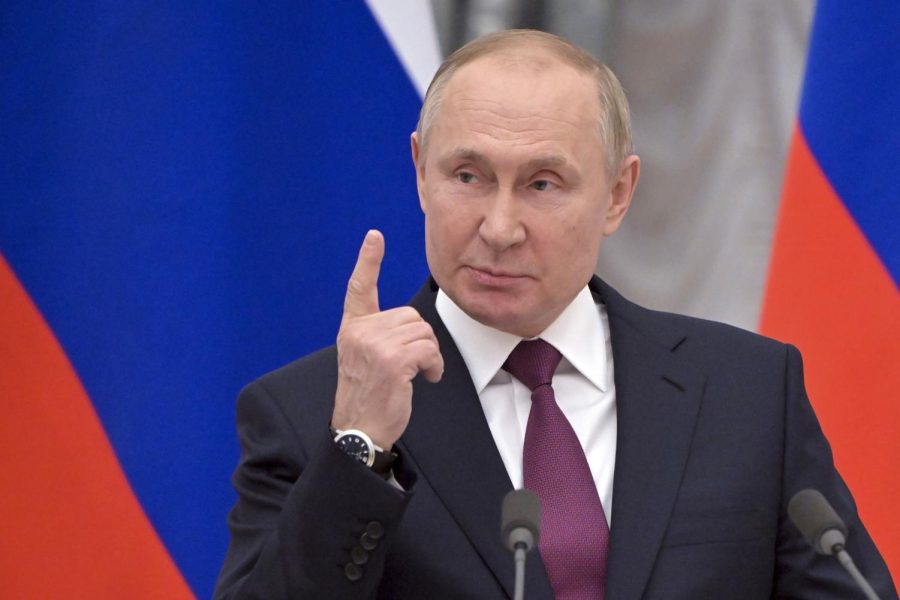On Sept. 13, 2023, Kim Jong Un and Vladimir Putin gathered at Russia’s new space launch station to discuss their nations’ complex relationship. Amid Russian struggles with military supplies for its ongoing attack on Ukraine, Putin seems to be turning to North Korea for assistance, marking a shift from Russia’s stance in previous years.
In 2017, both Russia and China voted for U.N. Security Council resolutions punishing Pyongyang for ballistic missile launches and nuclear tests. However, Russia appears to be backtracking. This meeting has the potential to reshape the ongoing Cold War, shedding light on the persistent tensions between the West and Russia. Around the conclusion of World War II, the U.S. lingered in a state of political hostility with the Soviet Union–the battles ranged from a race to the moon and constant espionage. Thankfully, the Cold War has not gone hot.
Olga Lautman, Senior Fellow for the European Center for Policy Analysis, argues that the Cold War never truly ended, challenging the Western misconception that it ended with the collapse of the Soviet Union in 1989. Lautman asserts that a portion of Russian officials and citizens have long held the West responsible for the Soviet Union’s collapse, fueling a desire for retaliation.
She explains, “The belief that the Cold War truly came to an end with Russia is a misconception held by many Western analysts and government agencies. While there was a period of relative calm after the collapse of the Soviet Union, a significant portion of Russian officials and citizens have always held the West responsible for the Soviet Union collapse,” which some Russians viewed as “…humiliating, and have sought retaliation.”
Lautman contends that “The evidence of Russia’s asymmetric warfare against the West, tactics such as election interference, information warfare, cyberattacks and malign influence operations, further demonstrates” retaliation against the West and an ongoing Cold War.
A key point of interest is the present possibility of an arms deal between Russia and North Korea, especially given North Korea’s aspirations for advancements in submarine technology, ICBM capabilities and food security.
Lautman predicts that “…the potential advancements in submarine technology, ICBM capabilities and food security for North Korea will complicate rather than bring North Korea any closer to negotiations.” The possible repercussions of such a deal on regional stability, particularly concerning China, may also be an issue.
“This arrangement may also make China uncomfortable, as it could alter the dynamics in the region,” Lautman warns.
This dilemma underscores the complexity of international relations, where Russia, a UN Security Council permanent member, with veto power, could be seen aiding North Korea in violating sanctions imposed by the UN years ago. This paradox highlights the complexity of the situation and issues surrounding the implementation of international sanctions.
She emphasizes, “Unfortunately, it took a major conflict in Europe…for the West to fully grasp the extent of the threat posed by Russia.”
Lautman’s perspective on the Putin regime’s vulnerability is presented, emphasizing the shift in Russia’s status from an aspiring superpower to a nation relying on support from a pariah state like North Korea. This transformation underscores the changing dynamics in global politics and the lengths to which Putin’s Russia is willing to go to maintain its influence.
Lautman notes, “This also serves as a stark reminder that historical events continue to shape today’s geopolitical landscape.”
Reuters reports that the summit concluded with a lavish meal, where Kim raised his glass of Russian wine and exclaimed, “The Russian army and people will certainly win a great victory in the sacred struggle for the punishment of a great evil that claims hegemony and feeds an expansionist illusion.”
At the conclusion of this controversial meeting, an arms deal of any form is uncertain, but–according to Reuters–when Russian media asked Putin if Moscow would help the hermit kingdom build satellites, Putin remarked: “That’s why we came here.” The Japan Times quotes Kim commenting, “Our friendship has deep roots and now relations with the Russian Federation are the number one priority for our country.”
The Japan Times stated that “Russia warmly receiving Kim Jong Un…is an interesting turn of events and would have been unimaginable a few years ago.”


